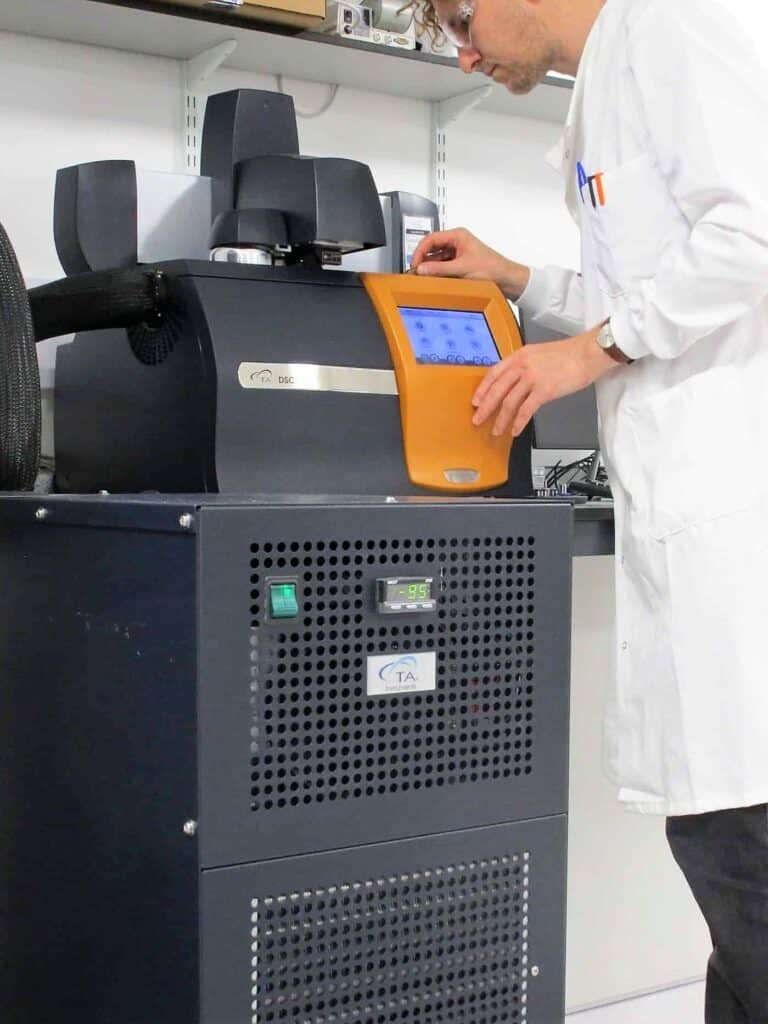Seda’s cutting-edge Differential Scanning Calorimetry capabilities
What is the lowest temperature below 0 °C that a Differential Scanning Calorimetry (DSC) apparatus can achieve?
This question may sound counter-intuitive at first, and rightly so. The word calorimetry is derived from the Latin word calor, meaning heat, warmth and the Greek word metron, meaning measure. Differential Scanning Calorimetry apparatus in fact measures the difference in the amount of heat required to increase the temperature of a sample and a reference. These measurements provide valuable information such as glass transition, crystallization and melting temperatures. Since its inception, Seda’s strong expertise in the thermal analysis field has been at the core of their offering. The acquisition of a top of the range DSC 2500 from the world-leading manufacturer TA Instruments was the first step in that direction. Seda’s DSC 2500 has now been used for the successful delivery of a variety of projects spanning from the screening and selection of amorphous solid dispersion systems for poorly soluble APIs to the understanding of complex phase change behaviours.
Now, going back to the initial question, it turns out to be a very pertinent one. Seda has now coupled their DSC 2500 with the Refrigerated Cooling System 120 (again from TA Instruments) which enables DSC/modulated DSC operations at temperatures as low as -120 °C. This powerful combination allows Seda to expand their offering to clients who are looking into understanding, for example, freezing behaviour of their drug products, establishing data-driven storage temperatures, and investigating the impact of variability in cold supply chains.
All in all, Seda’s cutting-edge DSC capabilities and expertise will benefit all those clients who want to design and develop more robust drug products, which will ultimately result in better treatments for their patients.
Learn more about the laboratory services we offer here at Seda.
